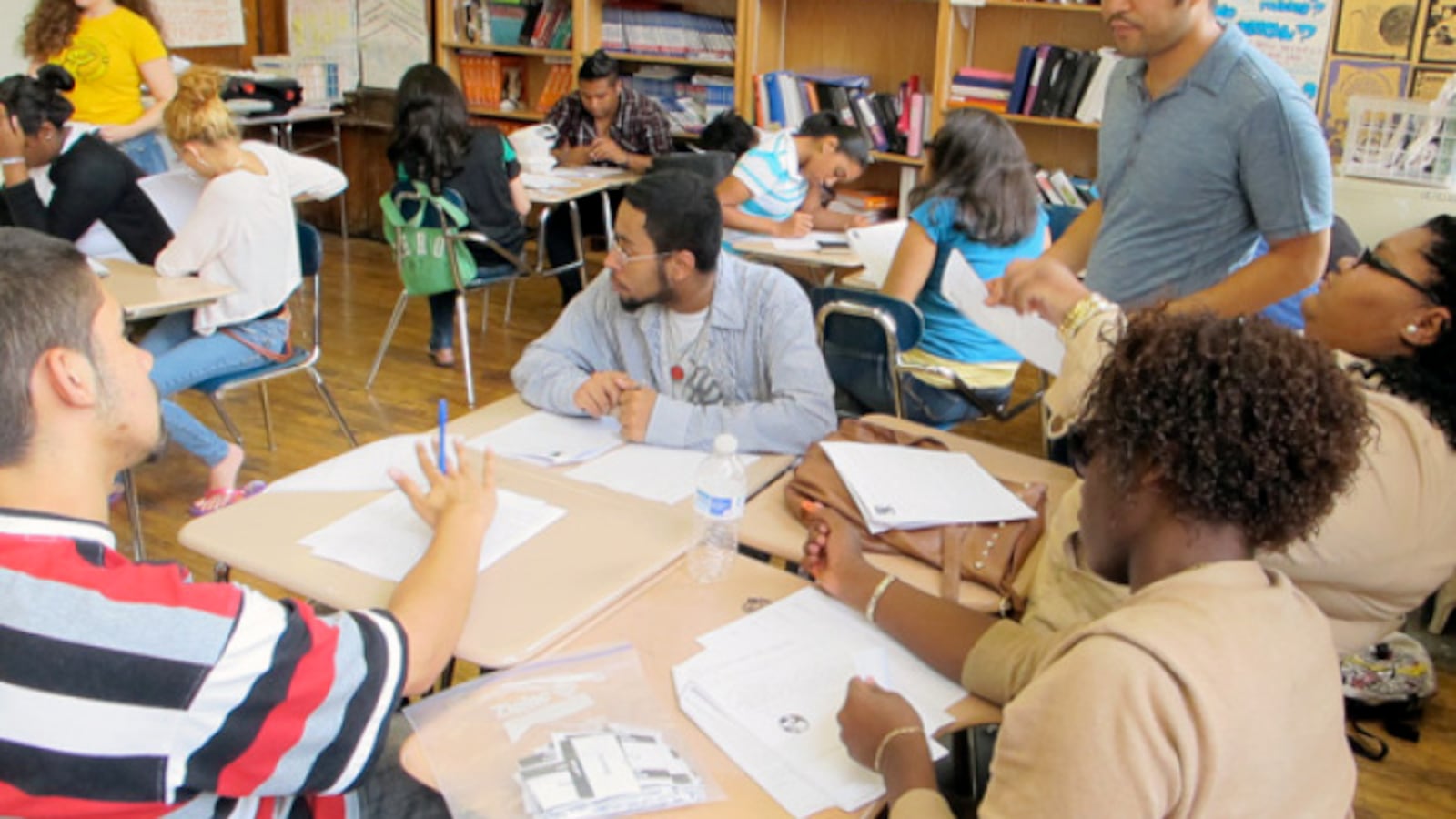As the state moves forward with its plan to overhaul the social studies curriculum and related tests, officials made clear Monday that they want to avoid the missteps that plagued the rollout of the Common Core and sparked a popular backlash against the standards.
The state’s Board of Regents met Monday morning with members of an advisory panel that helped the state Education Department craft a new outline of the social studies skills and information that students should learn in each grade. A final draft of the outline was recently completed and must be approved by the Board of Regents, which could vote on the proposal as early as next month.
Several Regents members signaled that they support the outline, but want to be certain that it will not face the intense criticism that has engulfed the state’s rollout of the Common Core. Others indicated their support for a related plan to reduce the content covered by a notoriously difficult history test required for graduation.
Regents Vice Chancellor Anthony Bottar said that in light of “the bruising we have taken” over the Common Core, “I need to know for sure that you have searched where you can and have talked to people, so that if we adopt what you are recommending, there isn’t going to be this huge undercurrent of, ‘We didn’t know.’”
Regent James Dawson alluded to the state’s widely panned decision to switch to the Common Core standards in English and math before new teaching materials were in place in schools. He said similar teaching materials should be created before the new social studies outline is adopted.
“The lack of that got us in trouble with regard to the Common Core,” Dawson said, adding that colleges will also need to prepare prospective social studies teachers to work with the new outline.
Members of the advisory panel — an unpaid group of educators and other experts from around the state — said they had met with other teachers often during the two years that the new social studies outline has been in development. They said that public comments on earlier versions of the outline led to substantial changes, and that both the state teachers union and a statewide social studies group back the finished outline.
They added that the outline will come with a “field guide” for educators, which could include primary-source documents, model lessons, and instructional tips.
“There has been not only strong consensus about this framework, but also active enthusiasm,” Gregory Ahlquist, an advisory panel member and New York’s 2013 Teacher of the Year, told the board.
The state decided to revamp its kindergarten-through-high-school social studies standards in 2011 soon after it adopted the Common Core standards, which only cover math and English.
The new social studies outline, called the New York State Common Core Social Studies Framework, keeps the existing standards but transforms how they are broken down and presented. In the spirit of the Common Core, it tries to include less and clearer content, and also adds more about the literacy and critical-thinking skills that students should master.
During the revision process, a repeated complaint has been that the outline packs in more content than teachers can cover in depth — a problem that some critics say the final version does not fix. But at Monday’s meeting, panel members said that in “hundreds” of instances the new outline narrows the scope of content that must be taught.
Along with the new curriculum, the State Education Department has proposed splitting Global History and Geography, a two-year high school survey course of world history, into two separate courses. Then the related state test — currently the most-failed of the five Regents exams required for graduation — would only cover history from 1750 to the present, drastically reducing the amount of material on the test.
The state’s proposal suggests that the first part of the divided course, which students would take in ninth grade, could end with a new Regents exam, “pending the direction of the Board and the availability of funding.” But on Monday, the chairman of the advisory panel said an additional Regents test is unlikely.
“If this were a perfect world, we’d have a Regents [exam] at the end of ninth grade,” said the chairman, Steven Goldberg, “but we know this is no longer a perfect world.”
Even if no new tests are added, the current social studies Regents exams would need to be updated to assess the new curriculum. The state has said that such tests could be ready by 2017. (The state no longer tests students in the lower grades on the social studies standards.)
The Board of Regents may vote on the proposals next month. Based on their comments Monday, it appears the board may vote to approve the new outline if their concerns about how it will be rolled out are addressed.
Regents Chancellor Merryl Tisch suggested Monday that the history-course split is also a top priority.
“One of the great mysteries for us is how to overcome the debacle of the two-year Global History test,” she said during the meeting.


